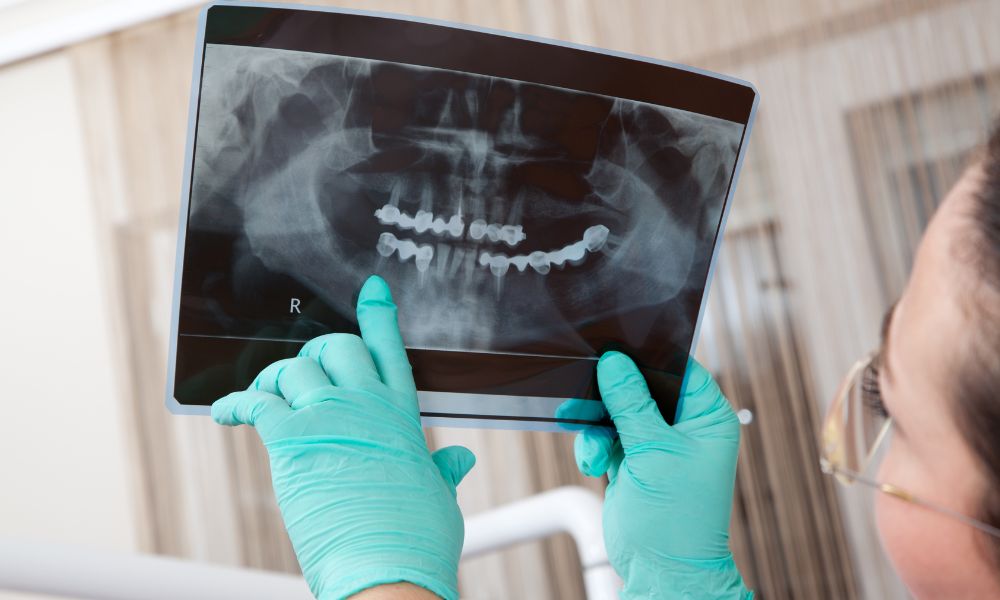Veterans Affairs dental benefits cover a wide range of dental procedures for eligible veterans who need them. Depending on your eligibility class, you may have coverage for a once-off dental examination or any dental treatment that’s considered necessary. Veterans who aren’t eligible for VA benefits can usually still gain access to discounted dental treatment through the Veterans Affairs Dental Insurance Program.
Dental Procedures That Are Covered under the VA
VA dental benefits typically cover procedures that deal with serious issues, such as those that could preclude you from obtaining employment, that cause you pain, or those that interfere with the functioning of your mouth. It may even cover procedures like dental implants if needed due to a service-related injury.
According to the VHA handbook, there are six different classes of eligibility, plus sub-classes, each of which has different inclusions. Please refer to the handbook for detailed information regarding your eligibility for free dental care.
Class I
Veterans with a compensable service-connected dental condition or disability are eligible for any medically necessary dental care.
Class II
Veterans who were discharged under conditions other than dishonorable and did not receive a complete dental examination upon discharge can apply for a one-time course of dental care to correct service-connected dental issues or dental problems that existed at the time of discharge or release from active service. The veteran must claim this benefit within 180 days of discharge.
Class IIA
Veterans with a non-compensable service-related medical condition from combat wounds can receive any necessary dental care.
Class IIB
Homeless veterans who receive care under VHA directive 2007-039 are eligible for specific dental procedures to:
- Gain employment
- Relieve pain
- Treat moderate or severe gum disease
Class IIC
A former prisoner of war is eligible to receive any dental care procedure that’s needed, including repeat care.
Class III
If a VA dental care provider identifies a dental problem that is aggravating a service-connected medical condition, the VA will cover the dental procedures needed to treat the issue.
Class IV
Veterans with a service-related injury that resulted in total and permanent disability are eligible for coverage for any dental procedure that’s needed. This does not apply to veterans whose total disability status is temporary.
Class V
Veterans who are participating in a VA vocational rehabilitation program licensed under 38 U.S.C. Chapter 31 are eligible to receive any dental care that’s needed to be accepted into and complete the program.
Class VI
Veterans who receive VA health care for a medical condition that is being made worse by an oral health issue can receive procedures needed to treat that issue.
Inpatient Care Status
VA dental care benefits cover certain dental procedures for veterans who receive inpatient care. The procedures must be provided by a VA dental care provider in conjunction with their primary care physician.
Veterans Affairs Dental Insurance
Veterans who aren’t eligible for comprehensive dental treatment under the VA Dental Care Program can buy dental insurance under the VA dental insurance program (VADIP). Compared to regular dental insurance programs, VADIP has lower premiums and lower co-payment amounts.
To be eligible for VADIP, you must be signed up for:
- The Civilian Health and Medical Program (CHAMPVA)
- VA Health Care
Dental Procedures Covered Under VADIP
VADIP covers dental care procedures that are considered essential for good oral health. Plans are provided by Delta Dental and MetLife and cover:
- Diagnostic tests, including X-rays and oral exams
- Preventative procedures, including routine cleanings and sealants
- Simple restorative procedures, including fillings
- Dental emergencies, including simple extractions
- Endodontic and restorative procedures, including root canals (12-month waiting period with Delta Dental)
- Crowns, bridges, dentures, and implants (12-month waiting period with Delta Dental, selected plans only, implants are not included in MetLife plans)
- Orthodontic treatments for dependents under 19 (MetLife’s High Option, 24-month waiting period)
The co-pay amount varies depending on the dental provider selected. Basic procedures provided by in-network dentists often come with 100% coverage, with a reduced coverage percentage for complex procedures and out-of-network providers.
Dental Procedures Not Covered Under VADIP
According to the MetLife manual, the Veterans Affairs Dental Insurance Program does not cover:
- Dental care procedures that were not prescribed or are not supervised by a dentist. In states where dental hygienists can practice unsupervised, these services are covered.
- Experimental or investigative dental procedures
- Treatment for employment-related dental issues if they are covered under a worker’s compensation program
- Dental procedures that are substandard or unnecessary
- Purely cosmetic dental procedures, such as the personalization or characterization of crowns, bridges, implants, dentures, and veneers
- Prosthetics (bridges, implants, and partial and complete dentures) to replace a tooth that was missing prior to the coverage start date and wasn’t missing due to a congenital (from birth) defect
- Dental procedures that are needed due to an injury or illness that was self-inflicted
- Tooth sealant procedures for patients aged 16 and above
- Replacement dentures if the dentures were lost or stolen
- Orthodontic devices and services for adults
- Gold foil restorations
Even though the VA Dental Insurance Program doesn’t cover the procedures mentioned above, other private dental insurance providers might. Before taking out dental insurance, ask exactly what’s covered and what’s not, and choose the provider that offers the coverage you need.
If In Doubt, Ask at Your Local VA
If you need dental work done for a service-related health condition or non-service-related dental issue, don’t pay out of pocket and find out about insurance later on. Pay a visit to your local Department of Veterans Affairs office and find out exactly what you’re eligible for and what isn’t covered under your VA benefits class. With that information in hand, you can go ahead with confidence or research other options such as VADIP and private insurers.
